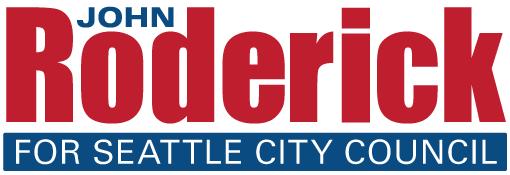Our city is experiencing serious growing pains from a sudden influx of capital and people, which is most acutely felt in rising housing costs.
The root of the housing crisis is simple: we don’t have the stock to accommodate all the people who want to live here. It’s only going to get worse as more people move to Seattle. This means we have to increase the supply of housing or face ever-increasing rent from constrained supply, as San Francisco has seen.
But increasing the number of housing units won’t be enough - we must have smart strategies to make sure we protect existing low income units as well as provide new affordable housing for low and very low income residents.
We also must view the problem through a race and social justice filter. Too many of our zoning laws are about excluding people, an echo if not an outright continuation of red-lining policies designed to exclude people of color from wealthier neighborhoods. Combined with waves of well-paid newcomers, this is creating a storm of displacement in our city
Here is what I support:
- Allow More Housing: In downtown and multifamily zones, as well as along our major bus and rail corridors, we should not be afraid of new apartments. New construction can take the pressure off our existing housing supply as long as we ensure we’re building a diversity of housing options. With transit investments it also can provide a more affordable and convenient alternative to living in a car-dependent neighborhood.
- More Housing Types: In our single family zones, the city needs to make it easier to create mother in law apartments, backyard cottages and cooperative living arrangements. Portland and Vancouver already utilize this tool, why aren’t we? We should review our code to see why they are doing better than us, and make appropriate changes to remove obstacles to this kind of affordable housing.
- Increase the Housing Levy: It is a critically important tool to building units for those most in need.
- Linkage Fee: I support a linkage fee on luxury and commercial development to fund affordable housing and/or requiring the inclusion of affordable units in such developments. However, we need to be careful about a linkage fee on plain old apartment buildings because we don’t want to inadvertently choke off moderately priced housing that helps with overall affordability.
- Protect Tenants from Displacement: Currently, landlords only have to give 20 days of notice when they don’t renew a term lease. That’s not at all adequate in Seattle’s housing market, and I would advocate for expanding that notice to 90 days. While I remain skeptical of full-fledged rent control,I support repealing the state law on rent control to give Seattle greater flexibility to provide appropriate tenant protections such as limitations on rent increases.
- Use Environmental Goals to Drive Our Development: The Seattle 2035 plan will map out where we accept our growing populations over the next twenty years, yet it fails to account for the transportation improvements we’ll need to make to enable that growth. I join the Sierra club in calling on the city to create an Alternative 6 to the Seattle 2035 plan that sets aggressive carbon-cutting goals and uses those goals to inform discussions of density. Transportation and housing can’t be discussed independently of each other, and development shouldn’t be planned without factoring in future transit investments. Without that vision, we will continue to develop neighborhoods haphazardly, pricing out current residents and reacting rather than predicting transit needs.
Ultimately, all these policy decisions require politicians to think about the next century for our city, instead of just reacting to the present crisis. After all, displacement will only accelerate as climate change impacts some of the most marginalized communities in the city. As flooding further reduces the amount of usable space, we’re likely to see even more pressure on housing prices in the future. We need a housing policy that accounts for the big picture, not just the next election cycle.
